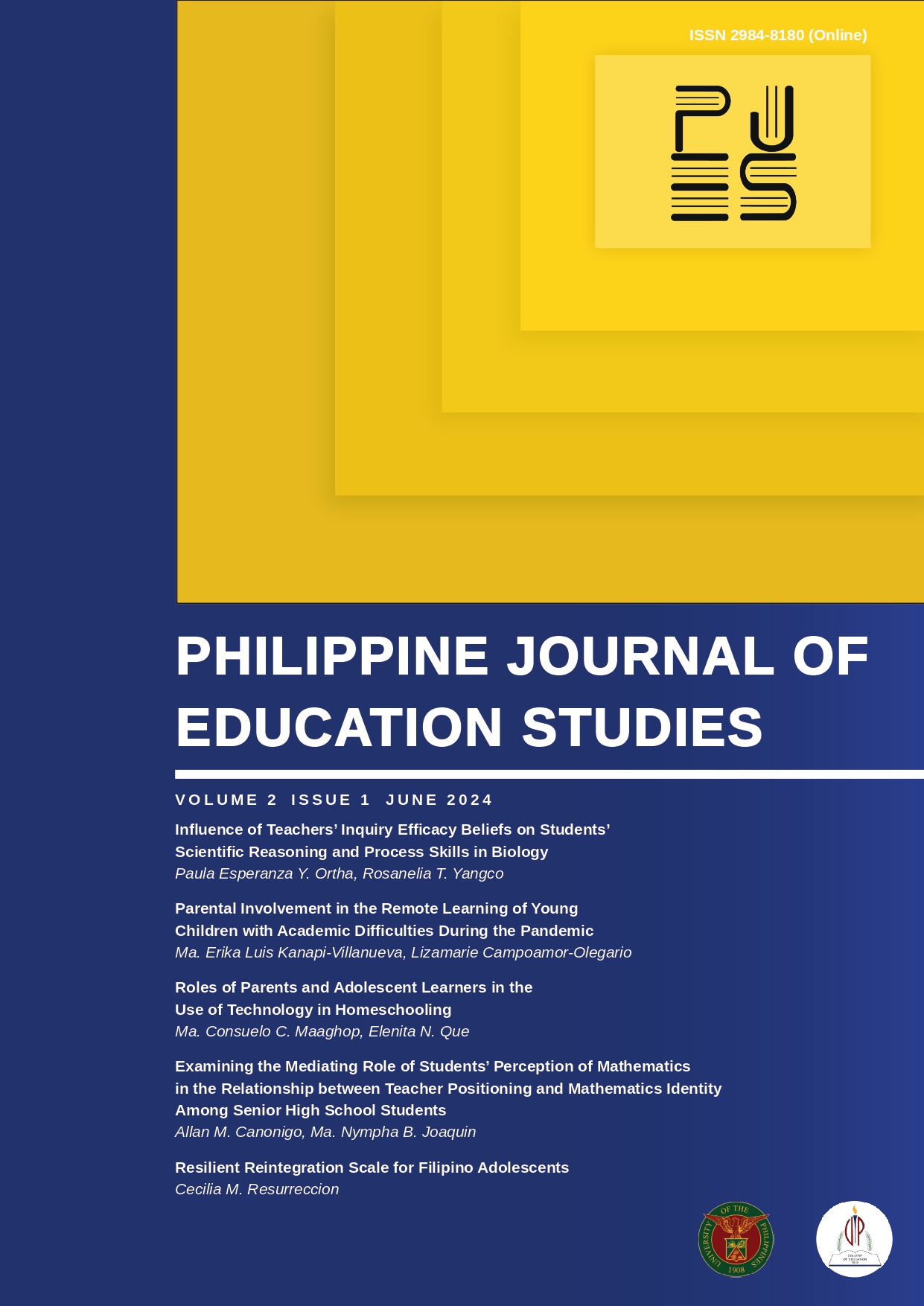Roles of Parents and Adolescent Learners in the Use of Technology in Homeschooling
Abstract
This exploratory phenomenographic research examines the varied ICT utilization experiences of Filipino homeschooling parents and their adolescents. Learning from those who have been using technology in homeschooling in light of the extensive use of blended learning in current learning delivery modes. The participants were parents and adolescents, purposively selected for their varied approaches to homeschooling to provide a rich outcome space. Data gathering ensued over five months, using open-ended phenomenographic interviews and making concept/mind maps. Transcription of data used intelligent verbatim and analysis and an iterative approach generated varied categories of description. Categories qualitatively represent different ways or roles of experiencing a phenomenon. Findings revealed that parents are consumers, filters, and instillers of values in using technology in the themes of expanding awareness on communication, facility for learning, and monitoring the consumption of the adolescent. Adolescents are consumers, learners, and seekers of their own potential with themes in communication, entertainment and gaming, access and restrictions, and homeschooling. Family dynamics categories are consumers, learners, and managers of technology with themes in communication, digital literacy, and character building. The study recommends that institutions promote digital literacy and capacity building for independent learning, that adolescents communicate their ICT needs with their parents, and that parents prepare adolescents to participate in the digital community.


